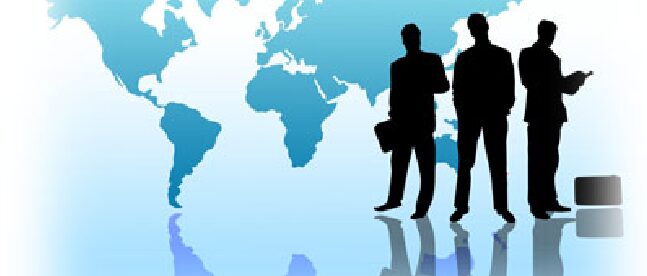In my far off days as a student I wrote a history essay describing the fourteenth century as a period of change. My erudite teacher scribbled in the margin his opinion that every century is a period of change. Rather than learning from what he told me I have updated my view and now see the turn of the 21st century as a period of even more striking change. This change brings a new context now and gives mankind as big a challenge as we have ever faced, at least as far as records show.
Before assessing that challenge and what we should do about it, maybe I should be more specific about the striking change that so excites me…
We have to start with the obvious and measurable: the growth of interconnectedness through trade and travel but most of all through information technology. We have always seen ourselves as individuals. Yet now we are increasingly connected, most obviously by the internet and improved access to it. It is possible that we have always been connected in ways beyond the ability of our current scientific knowledge to explain, but the internet makes us more obviously connected in the way an ant colony or a field of net-rooted buttercups are connected.
As little as fifty years ago the vast majority of people in this world would rarely see anything beyond the environment into which they were born. Now anything we want to see is accessible instantaneously online for a huge and still rapidly increasing number of us. Historically, information or even writing was restricted to the controlling classes who recognized knowledge as power. In spite of efforts to varying extents by all authorities to restrict access to information, it is increasingly difficult to do so. And if information is interesting or provocative enough, it can even go viral and spread like wildfire or as a meme.
We are able to learn more and more about the level of hypocrisy and corruption among those in positions of authority. As an example we can consider the fact that there is evidence easily accessed online that the last three US presidents have used marijuana recreationally. That may be unsubstantiated, but it still raises some question about the integrity of our political structure when considered in context with the war on drugs that these presidents have all waged.
Another important change in the last fifty years is the influence of television. In many households across the world the TV is left on all day either as background decoration or to be directly viewed. What message are we given by the TV? Aside from relocating our attention from the real world into a fictitious acted reality, we are also told by advertising how inadequate we are. We are shown that we need to buy a whole range of products before we get a chance of being valued as a human being. Whilst we will never be as valuable as Scarlett Johansson or Brad Pitt, if we buy more products we can at least be better people than our neighbors.
And who wants us to buy more? The producers of those products who want us to think that our life is a failure unless we buy from them. Toothpaste, washing powder, insurance, cars, you name it – we hear we will fail to find happiness without it.
This idea ties with a new message from social centers of influence. Previously we were taught by our parents, church, educators and other institutions to work hard, behave decently and not to spend more than our income. Whilst those institutions have declined in influence, the IT revolution now gives us access to different message from politicians and governing institutions.
We hear of them trading influence for cash, saying one thing and doing something else and spending more than their income. They model ego as the force to follow, together with the greed and selfishness it entails. In pursuit of greed, they support the finance industry that has recently pushed mortgages and credit or debt on to anyone with the ability to hold a pen and sign their name on a contract. This has directly led to the current global economic crisis.
So we have mostly increased material living standards but with greater inequality, increased influence on our lifestyle of commercial self interest, a fall in the influence of positive role models and an increased flow of information regarding the imperfections and lack of ethics of those leading society. Where does it place us? In many ways we are more empowered. However we have little guidance aside from a world of negative role modeling as to how to use that power. We are encouraged to join the headlong rush for selfishness and non-sustainable material growth.
Personal responsibility is all there is. Media increasingly shows us how far away our leaders are from implementing this responsibility in their own lives. This needs to change. But before anyone can demand this change they need to live it themselves. The only resolution is personal. I must make the sacrifice of taking on the behaviors of selfless and responsible living myself. I just hope I have the fortitude to do as much. Anything else supports the further abandonment of our world to the motives of greed and selfishness.
By Andy Charles
Andy Charles is an expat in Asia. He worked in business for 10 years and then has taught economics for another 10 years. He is driven by a need to understand why things happen and pass on that understanding. His interests vary but include human structures like money, language and time, human development, control mechanisms in relation to human behavior and humor. He practices yoga daily.



